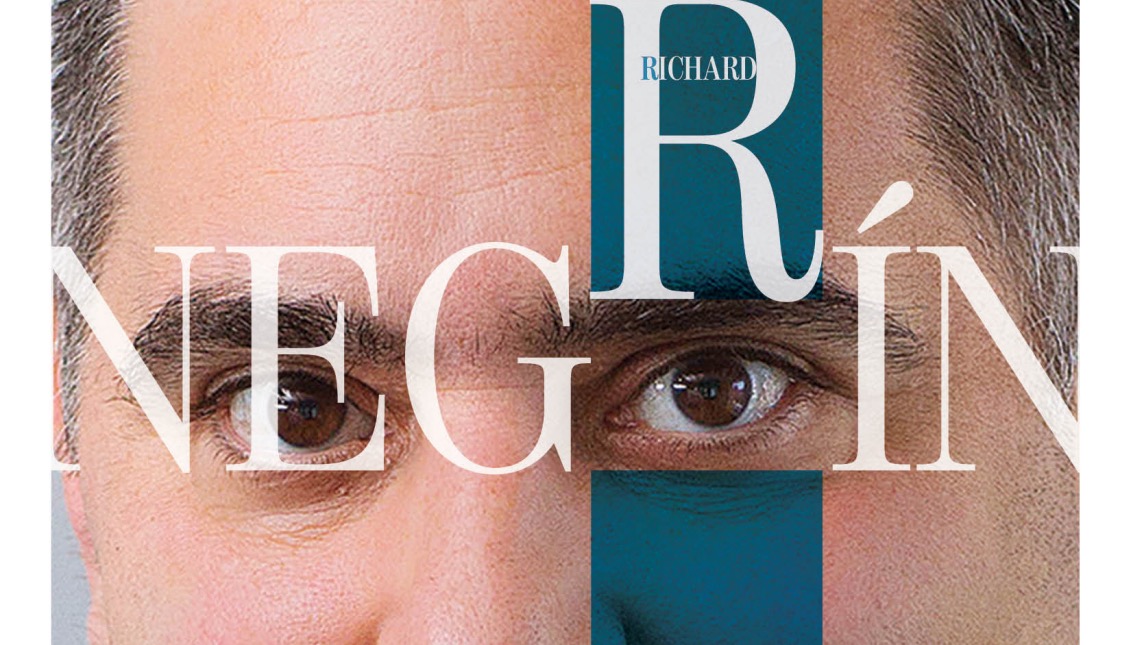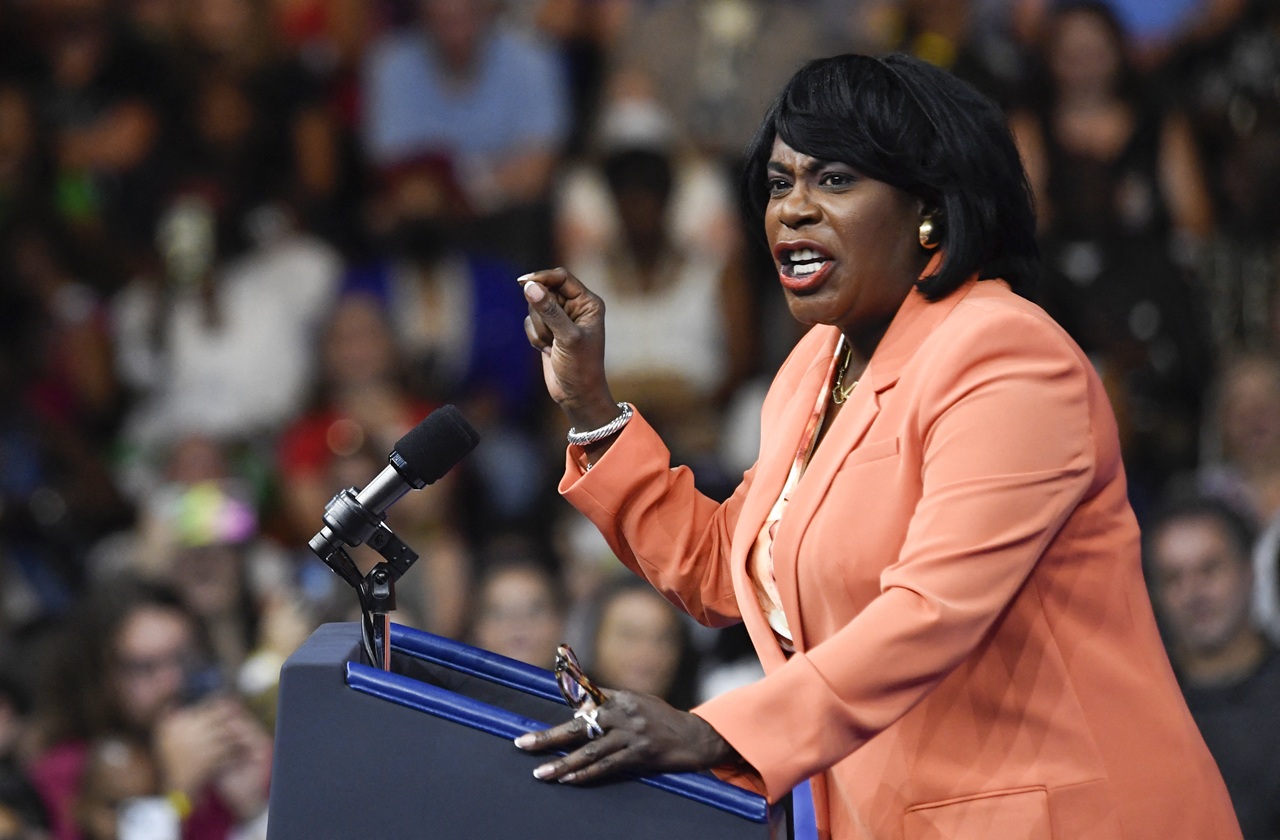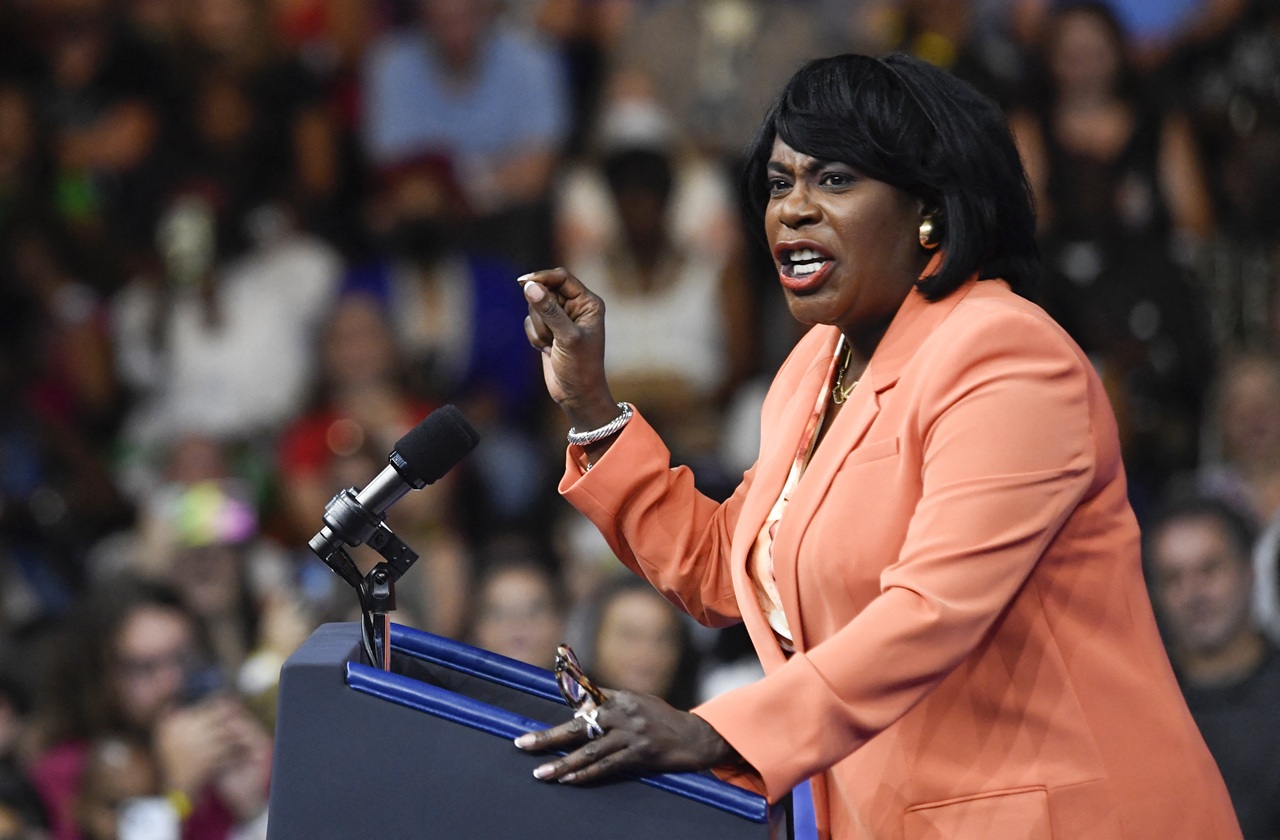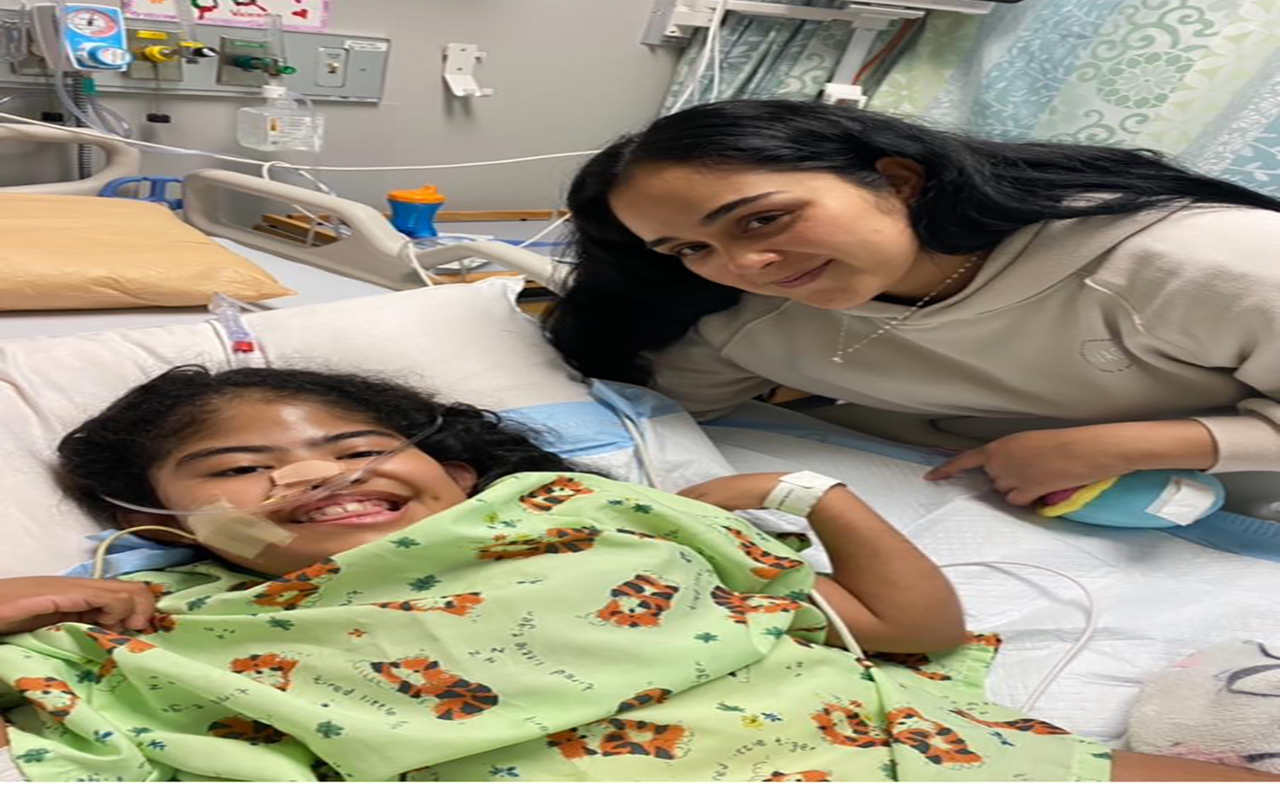
Richard Negrin stands out among Latinos
The highest ranking Latino official in Philadelphia talked with us about his life in public service; the representation of Latinos in government and the…
Richard Negrin, Philadelphia’s managing director and right hand to Mayor Michael Nutter, did not hesitate during a nearly three hour conversation with AL DÍA News’ editorial team.
Whether Negrin, the highest ranking Latino official in the local government, aims higher and aspires to run for mayor someday was only one of the questions that he answered for us.
He certainly has the experience and knows how the city works even beyond the Offices of Human Resources, Information Technology, and the Procurement Department all of which he supervises.
He has the additional credentials of working in public service through initiatives like Philly Rising, which focuses on neighborhoods plagued by poverty and crime; Philly 311, the phone, online and mobile platform for city services; and PhillyStat, through which he has changed the way the local government is managed.
Above all, he has a compelling life story that began with his parents’ exile from Cuba. Among it’s most dramatic chapters, is the one in which he witnessed his father's murder (when he was 13), motivating him to become a lawyer and prosecutor. Among its most glorious chapters is when he played with the Cleveland Browns and the New York Jets… An all American dream.
His parents immigrated from Cuba in 1961, fleeing the revolution and communism, and it was here in the United States where they met each other, settled in Newark, N.J., got married and had Negrin and his sister. His grandmother left Cuba without knowing if she would ever see her husband again, but they reunited six months later.
“As I look back, I realize a lot of my views were formed at a very early age,” Negrin said.
His childhood home in Port Elizabeth was near the turnpike, a refinery, a funeral home and a junkyard, and among his friends, there was a Polish kid, two Puerto Ricans, a Cuban and an African-American.
“I thought I had the greatest childhood,” Negrin said.
His parents divorced after five years of marriage, his mother remarried, and Negrin and his family moved to Edison, N.J.
When he was 13 years old, Negrin witnessed his father's murder, who was part of a group of Cuban exiles called the Committee of 75, which promoted dialogue with the Cuban government and worked for the liberation of thousands of political prisoners in the island in the 70s.
The paramilitary group Omega 7 — a terrorist organization made up mostly of Bay of Pig veterans whose goal was to overthrow Fidel Castro — was responsible for his father’s death.
“They targeted my dad for assassination as a result of his involvement with that effort to create a dialogue,” said Negrin, who remembers his father as a politically and civically engaged person who ran for mayor of Union City and for the State Senate, and who used to talk about what it meant to be Cuban in the United States.
“I think he would be very happy and excited to hear about what’s happening now with Cuba,” Negrin said in reference to the reestablishment of diplomatic ties with the island.
“It was always his view that you don’t need to believe in a government system to maintain a diplomatic relationship,” Negrin said.
When it was time to go to college — Negrin was the first in his family to do so — he chose Wagner College in New York City, joined the football team, won a college national championship, and later even got a shot at the NFL, an experience that opened up his eyes to a world of possibilities.
“The first time I flew in an airplane was to play in a football game,” said Negrin, who grew up in a humble family for whom vacationing typically meant going to the Jersey Shore.
His family spoke Spanish at home. Negrin learned to speak this language first but later stopped practicing it, although he never stopped celebrating Cuban culture, food and music.
He moved to Camden in 1992 to go to Rutgers University’s School of Law, and he started working at the Philadelphia District Attorney’s Office.
“I fell in love with Philadelphia,” Negrin said. “I knew back then that I wanted to stay here, practice, raise my family, and make this city my home”.
After serving as a prosecutor in the Major Trials Unit of the D.A.’s Office, Negrin started working at Morgan Lewis, and later at Aramark as a member of the Executive Leadership Council on healthcare and corrections.
In 2014, Mayor Nutter invited him to join his team and be a part of the Board of Revision of Taxes (BRT), which at that time was plagued by corruption and controversy.
“When I got there I realized that there were entire neighborhoods in Philadelphia that had never been updated or assessed accurately,” said Negrin. He started working on restructuring the BRT even before he got appointed as executive director, opening the way to what would eventually become the establishment of a Actual Value Initiative (AVI).
In July 2010, Negrin was sworn in as Deputy Mayor of Administration and Coordination and Managing Director of the City of Philadelphia. Last November he completed five years of work with Nutter.
“My wife says I can’t keep a job more than five years and it’s fairly true,” Negrin said jokingly. His term will come to an end along with Nutter’s administration in January 2016.
“I still have things that I’m trying to accomplish,” he added.
Here’s what Negrin had to say to AL DÍA News:
About being Latino:
“Whether it’s love for public service, working hard or trying to be successful, all of that is tied to that cultural experience around what the promise of America means for those of us who have families who have sacrificed to be here. We are all here, regardless of our backgrounds, with common stories around what this country represents in terms of opportunity.”
About financing public education:
“Something that’s really important that people don’t talk about is the additional $363 million dollars that the city gave to fund education. There is about $450 million that went away on the state side so we’re trying to fill that gap. When you talk about poverty, there’s nothing more effective (in combatting it) than funding education. The total amount that the city gives to the School District in an annual basis, is over a billion dollars. Almost a quarter of the city budget — which we have no control over — goes to the School District.”
About the representation of Latinos in local government:
“Just because I’m the highest ranking Latino official doesn't mean I’m the only one. Whether it’s Edward Garcia, assistant managing director; Jennifer Rodriguez, executive director of MOIMA; Lydia Hernandez Velez, deputy managing director for aging; or David Torres, who runs administrative work in my office, there are Latinos throughout city government in strategic positions bringing their cultural experience (to the table) and being part of the conversation. The managing director’s office is 88 percent diverse in terms of gender, race and ethnicity. If you look across the mayor’s cabinet and his team there is diversity at the very top, and it’s not about hitting a quota, It’s just that diversity works.”
About the participation of Latinos in elections and public service:
“There should be a Latino running in every single election in Philadelphia. If we are asking our people to vote, we should also ask them to get involved and not only in politics but across the spectrum. Joanna Otero Cruz, at Concilio; Tony Valdes, at the Children’s Crisis Treatment Center; Rev. Luis Cortés, at Esperanza; and organizations like Congreso and APM, are making a substantial difference in our community. They are engaged in public service like I am, and they are setting an example for our young people — saying that not only should you vote, but also engage in public service and be a part of our government.”
About the possibility of running for mayor:
“As the managing director of the city of Philadelphia it is prohibited for me to discuss any political activity. I love Philadelphia, and if I get an opportunity to serve this city again, not only as mayor, but as an appointed or elected official, in the private sector or in a non-profit organization, I am going to consider it very carefully, and that has nothing to do with politics … it’s about about public service. Right now as managing director, I still have things that I’m trying to accomplish.”
About being a role model:
“If I’m not talking to kids at least once a week, I get cranky, because being a role model is a big part of who I am. I’ve been a role model in different stages of my life and I’ve been the highest ranking Latino in every organization that I’ve ever been a part of. But I underestimated how I would feel when I’m in a classroom talking to 20 children about who I am, and what I do to make a difference in the community.”
About the end of collaboration between local law enforcement and Immigration and Customs Enforcement (ICE):
“We agreed to limit the use of victim’s information with regard to ICE holds four years ago, after we started tracking how they were utilizing data and we didn't see any benefit. That was before we stopped honoring ICE holds last year. The mayor did not need a lot of persuasion to get there. He has a process in which he makes decisions incrementally, thoughtfully, and after hearing from stakeholders. Even though he knows where he is going, that doesn’t mean he short circuits that and reacts in knee jerk fashion, but he has to make it through a process.”
About the Mayor’s Office of Immigrant and Multicultural Affairs (MOIMA):
“It’s been a phenomenal year and a half in terms of the some of the things they’ve done. Jennifer Rodriguez (director of MOIMA) wrote the memo and recommendations around ICE. We hired a translation service for people to be able to connect with the city in 100 different languages. We did cultural sensitivity training with the employees of the city from a customer services perspective. Citizen initiatives are a big part of the focus this year.”
About “stop-and-frisk” and racial profiling:
“The victims of crime and violence are not the white people in Chestnut Hill. They’re our people and our kids, minorities and Latinos. When we talk about the fact that 290 people are alive today because we dropped the homicide rate 37 percent in the last six years, the people whose lives we’re saving are in our community. You can’t talk about stop-and-frisk and not realize that our people, the Latinos, are safer today because of it.”
About the digital divide and Philadelphia’s mobile strategy:
“The digital divide has gotten better but it’s still somewhere between the high 20s and the low 30s, and in the Latino community somewhere between 50 to 60 percent of our folks don’t have access to the internet. If we talk about jobs, we have the lowest unemployment rate since pre-recession numbers, 6.4 percent, but it’s double that for the Latino community. The vast majority of jobs are now only available online, so if you don’t have a job and you don’t have a computer, you are out of the job market. The mobile strategy in the city is a poverty plan for our community, including the Latino community.”
About “Philly Keyspots”:
“We created 58 computer labs throughout the city, in every Philly Rising neighborhood, which are our most challenged neighborhoods. It’s not only about making sure people have free access to a computer with internet, but also about having staff and volunteers that can help them do something as basic as fill out an online job application."
About 311:
“If you live in Philadelphia, you have to download 311 in your phone. If you don't have a computer because you can’t afford one, most of our folks can afford a smartphone. We are trying to integrate everything that we do in a meaningful way, to reach out to everybody in our neighborhoods. Because of this you can take a picture of a graffiti in your neighborhood and it will be gone in 48 hours. We are the only city that offers an app like this in 17 languages — because we looked at how the city grew in the last census and saw a need.”
About unions and pension reform:
“Right now we have a pension fund that is under 50 percent funded for all of our city employees. Mayor Nutter fought and didn't cave in on the union contracts. They didn’t want pension reform and he pushed them because it was the responsible choice. Because of pension reform, in 15 or 20 years the pension fund is going to be funded 80 percent. That means that city employees who are working right now for the city of Philadelphia, may actually retire with something. But even 80 percent is not good enough, your pension fund should be 100 percent funded.”










LEAVE A COMMENT: